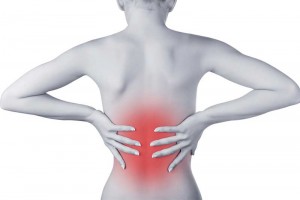 Back pain is a musculoskeletal disorder (MSD) which also consists of neck discomfort and repetitive strain injury (RSI). Musculoskeletal disorders are a primary cause of people being off ill from work.
Back pain is a musculoskeletal disorder (MSD) which also consists of neck discomfort and repetitive strain injury (RSI). Musculoskeletal disorders are a primary cause of people being off ill from work.
Back pain has a wide variety of causes, from getting a heavy parcel incorrectly to investing too long in one position. Feeling extremely nervous or worried can make your pain even worse. It is hardly ever due to a determined health issue.
Around 80% of people will experience back pain at some stage in their life. For some chronic back pain can have a detrimental effect on their lifestyle. Back pain can often affect your ability to perform even the most simple daily tasks.
Numerous structures in your back can cause pain; muscles, nerves, ligaments, discs and bone could all contribute to your back pain, which is often experienced as a deep aching feeling in the lower back and is commonly exaggerated by movement or maintaining the same position for a prolonged period.
At [site_title]? we strive to diagnose your injury, control your pain and facilitate a return to normal function as soon as is possible.
Causes of Back Pain
Acute back pain that occurs suddenly can be the result of trauma. This can be the effect of any combination of bending, heavy lifting, or twisting in a way that causes damage to the muscles, ligaments, and joints of the back.
Unfortunately, acute back pain can also develop without any apparent cause and be just as painful. Chronic back pain may also occur over a prolonged period of time as a result of repetitive motions (RSI) that put stress on the back. [site_title]? will determine the cause of your pain and put measures in place in an attempt to prevent recurrences.
Some of the common injuries and pre-conditions that cause back pain are:
[su_list_fav]- Muscle strain: A muscle strain can result from poor posture or lifting excessive loads, causing muscle fatigue and back pain.
- Poor posture: Poor posture can put unnecessary load on the various structures of the spine and result in back pain over time.
- Disc bulge: Discs act as shock absorbers to reduce stress on your spine and are situated between your bony vertebrae. Disc injuries are common. They can occur due to sudden movements or from long term postural stress, causing inflammation and pain, and in extreme cases can irritate nearby spinal nerves. This can cause radiating leg pain, pins and needles, and numbness (often mistakenly diagnosed as sciatica). [site_title]? are experts in the treatment of lumbar disc injuries.
- Facet joint sprain: Each of your vertebrae is connected to the one above and below by two joints named facet joints which can be sprained, just like your ankle, if you move in an awkward way. As with a sprained ankle, if the facet joints become inflamed, you will experience back pain and limitation in movements.
- Sciatica: The sciatic nerve runs from your lower back, down the back of your thigh and calf and into your foot. If compressed, the sciatic nerve can cause lower back pain which may radiate to the leg or buttock. It can also cause pins and needles, numbness, muscle spasms, reduced flexibility, and weakness.
Physiotherapy and Back Pain
Physiotherapy is incredibly efficient with musculoskeletal disorders such as back pain. In one research, 80 percent of people who had physiotherapy for their musculoskeletal disorder were able to carry on working and did not have to go off sick.
A physio will first have a look if you have a major health issue that may be connected to your back pain. He or she will then discover the reason for your back pain and look at methods to help avoid more problems.
Physiotherapists provide a variety of treatments that have shown to be efficient with back pain. These include manual therapies and acupuncture. Your physio will also recommend an appropriate workout and pain relief that is customised for you.
